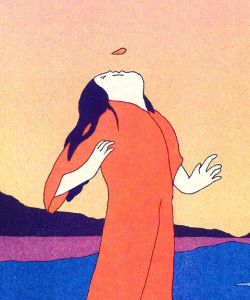Ten Questions for Shayla Lawz

“I was using the text as a future image of what my own life could be.” —Shayla Lawz, author of speculation, n.
Jump to navigation Skip to content

“I was using the text as a future image of what my own life could be.” —Shayla Lawz, author of speculation, n.
Kick off the beginning of a new month by submitting to one of the following six contests, which all share a November 1 deadline. Poets, fiction writers, and nonfiction writers will find an abundance of opportunities in these prizes, with two of the awards being given in all three genres. All contests offer a cash prize of $1,000 or more, with the chance for one lucky fiction writer to win $15,000 and book publication.
Briar Cliff Review Writing Contests: Three prizes of $1,000 each and publication in Briar Cliff Review are given annually for a poem, a short story, and an essay. The editors will judge. Entry fee: $20 (includes a copy of the prize issue).
Brick Road Poetry Press Book Contest: A prize of $1,000, publication by Brick Road Poetry Press, and 25 author copies is given annually for a poetry collection. Keith Badowski and Olivia Ivings will judge. All entries are considered for publication. Entry fee: $30.
Fiction Collective Two Catherine Doctorow Innovative Fiction Prize: A prize of $15,000 and publication by Fiction Collective Two, an imprint of University of Alabama Press, is given annually for a novel, short story collection, novella, or novella collection. U.S. writers who have published at least three books of fiction are eligible. Cristina Rivera Garza will judge. Entry fee: $25.
Fiction Collective Two Ronald Sukenick Innovative Fiction Contest: A prize of $1,500 and publication by Fiction Collective Two is given annually for a novel, short story collection, novella, or novella collection. U.S. writers who have not previously published a book with Fiction Collective Two are eligible. Marream Krollos will judge. Entry fee: $25.
Malahat Review Open Season Awards: Three prizes of CAD $2,000 (approximately $1,622) each and publication in Malahat Review are given annually for a poem, a short story, and an essay. Conor Kerr will judge in poetry, Zilla Jones will judge in fiction, and Erin Soros will judge in creative nonfiction. Entry fee: CAD $45 (approximately $36), which includes a subscription to Malahat Review.
Nina Riggs Poetry Foundation Award: A prize of $1,000 is given annually for a single poem that examines relationships, family, or domestic life that was published in a book or magazine in the last three years. Entry fee: None.
Visit the contest websites for complete guidelines, and check out the Grants & Awards database and Submission Calendar for more contests in poetry, fiction, and creative nonfiction.
“By the pricking of my thumbs, something wicked this way comes.” Watch the trailer for The Tragedy of Macbeth, a film based on the play of the same name by William Shakespeare, written and directed by Joel Coen and starring Denzel Washington, Frances McDormand, and Corey Hawkins.
“I want to be / at least as alive as the vulgar. And if / some aficionado of my mess says ‘That’s not like Frank!,’ all to the good!” reads Jenny Xie from Frank O’Hara’s poem “My Heart” in this episode of Ours Poetica, a series produced by the Poetry Foundation in collaboration with Complexly.
“I’ve turned old. I ache most / To be confronted by the real, / By the cold, the pitiless, the bleak.” In this 2018 video from the 92nd Street Y, Tracy K. Smith reads her poem “Annunciation,” which appears in her new collection, Such Color: New and Selected Poems (Graywolf Press, 2021). Smith’s fifth poetry collection is featured in Page One in the November/December issue of Poets & Writers Magazine.
“Monastic firs, marginal, / conical, in brooding snoods / a finical sun unpacks, clerical // in scarlet fringe of Interstate scrub,” writes Lisa Russ Spaar in her hypnotic poem “Driving,” published in the Academy of American Poets’ Poem-a-Day series. In the poem, Spaar shifts from the speaker’s present to the past, in a kind of daydream: “Sick days // in autumn, child on cot-raft, / chaste bedroom chary / with red smell of measles.” Write a poem that describes the feeling of driving long distances. Challenge yourself to begin with descriptions of the road and progress into the realm of memory and meditation. (If you don’t drive, do the same exercise with walking.)
“For some reason, the poems are much closer to the reality in my life,” says Ananda Lima about her writing process for poetry versus fiction in this episode of The Story Talks Back podcast with Dave Stanton. Lima’s first poetry collection, Mother/land (Black Lawrence Press, 2021), is featured in Page One in the November/December issue of Poets & Writers Magazine.
The deadline is approaching for the fourth annual Breakout! Writers Prize, sponsored by Epiphany Magazine and the Authors Guild. Four prizes of $1,000 each, publication in the Fall/Winter 2021 issue of Epiphany, a membership with the Authors Guild, and a year-long mentorship with Rachel Lyon, Epiphany’s editor in chief, are awarded to undergraduate or graduate writers. Two prizes will be given to poets and two to prose writers. Shane McCrae, Nadia Owusu, and Rachel Lyon will judge.
Using only the online submission system, submit one short story, a novel excerpt, or a work of creative nonfiction up to 5,000 words, or five poems of any length, along with a statement of interest and a $10 entry fee, which includes a digital subscription to Epiphany, by November 1. Visit the website for complete guidelines.
Deriving their name from the “Joycean idea that an epiphany is the moment when ‘the soul of the commonest object…seems to us radiant,’” Epiphany is a semiannual literary journal and independent non-profit based in New York. The Breakout! Writers Prize is meant to celebrate the future of art by honoring and bringing visibility to college and graduate student writers. Students do not have to be enrolled in a creative writing program to apply.

Jennifer Huang’s Return Flight, forthcoming from Milkweed Editions on January 18, 2022.
“Dark and huge, it is frightening to be alive with a song in you,” reads Shangyang Fang from his poem “Serenade Behind a Floating Stage” in this Copper Canyon Press video promoting his debut collection, Burying the Mountain, which is featured in Page One in the November/December issue of Poets & Writers Magazine.